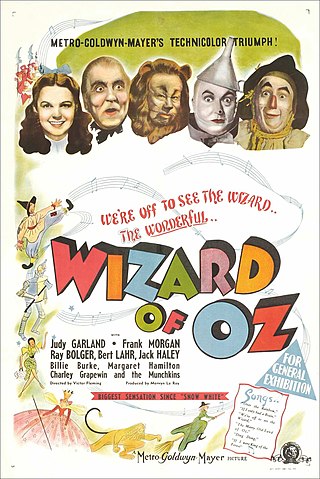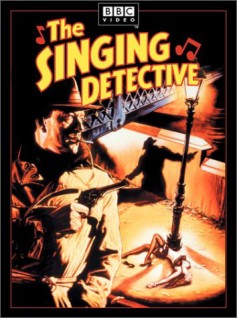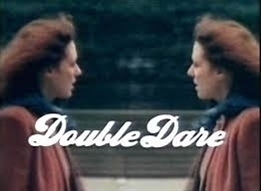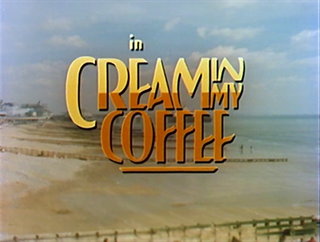Related Research Articles

Dennis Christopher George Potter was an English television dramatist, screenwriter and journalist. He is best known for his BBC television serials Pennies from Heaven (1978) and The Singing Detective (1986) as well as the BBC television plays Blue Remembered Hills (1979) and Brimstone and Treacle (1976). His television dramas mixed fantasy and reality, the personal and the social, and often used themes and images from popular culture. Potter is widely regarded as one of the most influential and innovative dramatists to have worked in British television.

Denholm Mitchell Elliott was an English actor. He appeared in numerous productions on stage and screen, receiving BAFTA awards for Best Actor in a Supporting Role for Trading Places (1983), A Private Function (1984) and Defence of the Realm (1986), and a nomination for the Academy Award for Best Supporting Actor for his portrayal of Mr. Emerson in A Room with a View (1985). He is also known for his performances in Alfie (1966), A Doll's House (1973), A Bridge Too Far (1977), Maurice (1987), September (1987), and Noises Off (1992). He portrayed Marcus Brody in the Steven Spielberg and George Lucas films Raiders of the Lost Ark (1981) and Indiana Jones and the Last Crusade (1989).

Raymond Wallace Bolger was an American actor, dancer, singer, vaudevillian, and stage performer who started his movie career in the silent-film era.

Auf Wiedersehen, Pet is a British comedy-drama television programme about seven British construction workers who leave the United Kingdom to search for employment overseas. In the first series, the men live and work on a building site in Düsseldorf. The series was created by Franc Roddam after an idea from Mick Connell, a bricklayer from Stockton-on-Tees, and mostly written by Dick Clement and Ian La Frenais, who also wrote The Likely Lads, Whatever Happened to the Likely Lads? and Porridge. It starred Tim Healy, Kevin Whately, Jimmy Nail, Timothy Spall, Christopher Fairbank, Pat Roach and Gary Holton, with Noel Clarke replacing Holton for series three and four and the two-part finale. The series were broadcast on ITV in 1983–1984 and 1986. After a sixteen-year gap, two series and a Christmas special were shown on BBC One in 2002 and 2004.
Brimstone and Treacle is a 1976 BBC television play by Dennis Potter. Originally intended for broadcast as an episode of the series Play for Today, it remained untransmitted until 1987. The play was made into a film version co-starring Sting. Both versions also star Denholm Elliott.
Karaoke is a 1996 British television drama written by Dennis Potter with the knowledge that he was dying from cancer of the pancreas.
Cold Lazarus is a four-part British television drama written by Dennis Potter with the knowledge that he was dying of pancreatic cancer. It forms the second half of a pair with the television serial Karaoke.

Nick Chopper, the Tin Woodman, is a character in the fictional Land of Oz created by American author L. Frank Baum. He first appeared in his 1900 book The Wonderful Wizard of Oz and reappeared in many other subsequent Oz books in the series. In late 19th-century America, men made out of various tin pieces were used in advertising and political cartoons. Baum, who was editing a magazine on decorating shop windows when he wrote The Wonderful Wizard of Oz, was inspired to invent the Tin Woodman by a figure he had built out of metal parts for a shop display.

The Wizard of Oz is a 1939 American musical fantasy film produced by Metro-Goldwyn-Mayer (MGM). An adaptation of L. Frank Baum's 1900 children's fantasy novel The Wonderful Wizard of Oz, it was primarily directed by Victor Fleming, who left production to take over the troubled Gone with the Wind. It stars Judy Garland, Frank Morgan, Ray Bolger, Bert Lahr, Jack Haley, Billie Burke and Margaret Hamilton. Noel Langley, Florence Ryerson and Edgar Allan Woolf received credit for the screenplay, while others made uncredited contributions. The music was composed by Harold Arlen and adapted by Herbert Stothart, with lyrics by Edgar "Yip" Harburg.

The Singing Detective is a BBC television serial drama, written by Dennis Potter, starring Michael Gambon and directed by Jon Amiel. Its six episodes are "Skin", "Heat", "Lovely Days", "Clues", "Pitter Patter" and "Who Done It".

The Jack Benny Program, starring Jack Benny, is a radio and television comedy series. The show ran for over three decades, from 1932 to 1955 on radio, and from 1950 to 1965 on television. It won numerous awards, including the 1959 Emmy for Best Comedy Show, and is generally regarded as a high-water mark in 20th-century American comedy.

Alone in the Dark is a 1982 American slasher film co-written and directed by Jack Sholder in his directorial debut, and starring Jack Palance, Martin Landau, Donald Pleasence, Dwight Schultz, and Erland Van Lidth. The plot follows a psychiatrist's family who are besieged by four escaped mental patients during a power blackout. Following Stunts and Polyester, it was one of the first films produced by New Line Cinema.

"Double Dare" is the 24th episode of sixth season of the British BBC anthology TV series Play for Today. The episode was a television play that was originally broadcast on 6 April 1976. "Double Dare" was written by Dennis Potter, directed by John Mackenzie, produced by Kenith Trodd, and starred Alan Dobie.
The Nigel Barton Plays are two semi-autobiographical television dramas by Dennis Potter, first broadcast on BBC1 in 1965 as part of The Wednesday Play strand. The first play, Stand Up, Nigel Barton, follows the eponymous character's journey from his childhood in a small mining community to winning a scholarship for Oxford, while the second play, Vote, Vote, Vote for Nigel Barton, sees him standing for Parliament as the Labour Party candidate in a by-election. Both plays develop themes and use dramatic devices that became hallmarks of Potter's later plays for television.

Blade on the Feather is a television drama by Dennis Potter, broadcast by ITV on 19 October 1980 as the first in a loosely connected trilogy of plays exploring language and betrayal. A pastiche of the John Le Carré spy thriller and transmitted eleven months after Anthony Blunt was exposed as the 'fourth man', the drama combines two of Potter's major themes: the visitation motif and political disillusionment. The play's title is taken from "The Eton Boating Song".

Moonlight on the Highway is a television play by Dennis Potter, first broadcast on 12 April 1969 as part of ITV's Saturday Night Theatre strand. The tale of a young Al Bowlly obsessive attempting to blot out memories of sexual abuse via his fixation with the singer, the play was the first of Potter's works to use popular music as a dramatic device and strongly anticipated Potter's later 'serials with songs' Pennies from Heaven (1978), The Singing Detective (1986) and Lipstick on Your Collar (1993).
Rain on the Roof is a television drama by Dennis Potter, broadcast by ITV on 26 October 1980.

Cream in My Coffee is a television drama by Dennis Potter, broadcast on ITV on 2 November 1980 as the last in a loosely connected trilogy of plays exploring language and betrayal. A juxtaposition between youth and old age, the play combines a non-linear narrative with the use of popular music to heighten dramatic tension, a feature of much of Potter's work. Cream in My Coffee was awarded the Prix Italia for best drama in 1981 and Peggy Ashcroft gained a BAFTA Best Actress award in 1981. The play's title is taken from the popular song "You're the Cream in My Coffee", from the 1929 Broadway musical Hold Everything!
"Shaggy Dog", broadcast by ITV on 10 November 1968, is a black-and-white television play by Dennis Potter written for the London Weekend Television anthology series The Company of Five, specifically a group of five actors. The Company of Five ran for one series of six episodes.
"Joe's Ark" is the second episode of fourth season of the British BBC anthology TV series Play for Today. The episode was a television play that was originally broadcast on 14 February 1974. "Joe's Ark" was written by Dennis Potter, directed by Alan Bridges, produced by Graeme McDonald, and starred Freddie Jones.